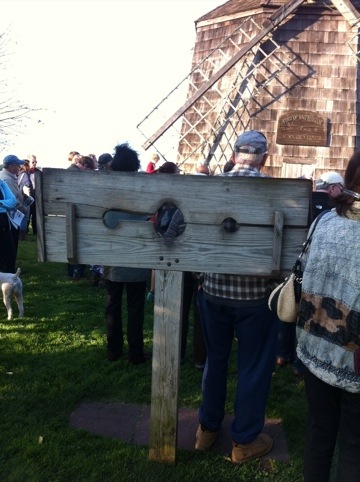Lisa Simeone is one of hundreds of people I met at the October 2011 Stop the Machine occupation of Freedom Plaza in Washington DC. [Media reports say she was at Occupy DC. Wrong. Different protest, different location, similar goals.]
She is beautiful, elegant, charming, and—like tens of thousands of Americans—exercising her First Amendment rights to protest the inequities of the current system. Like the protest itself, Lisa was strictly non-violent at all times.
Lisa is a freelance producer for “World of Opera,” which is recorded at a small radio station in North Carolina. “World of Opera” is distributed by NPR. Its content is apolitical. Lisa is not on staff at NPR or at the NC station.
On Wednesday NPR discovered Lisa Simeone’s attendance at Stop the Machine in DC. That same day, NPR persuaded a company for which Simeone worked to fire her. This is 1950s-style, neo-McCarthyite blackballing. Her income has been halved.
NPR staff received the following email:
From:NPR Communications
Sent: Wednesday, October 19, 2011 6:12 PM
Subject: From Dana Rehm: Communications Alert
To: All Staff
Fr: Dana Davis Rehm [TR: Rehm is Senior Vice President for Marketing, Communications, and External Relations] Re: Communications AlertWe recently learned of World of Opera host Lisa Simeone’s participation in an Occupy DC [sic] group. World of Opera is produced by WDAV, a music and arts station based in Davidson, North Carolina. The program is distributed by NPR. Lisa is not an employee of WDAV or NPR; she is a freelancer with the station.
We’re in conversations with WDAV about how they intend to handle this. We of course take this issue very seriously.
As a reminder, all public comment (including social media) on this matter is being managed by NPR Communications.
All media requests should be routed through NPR Communications at 202.513.2300 or mediarelations@npr.org. We will keep you updated as needed. Thanks.
##
NPR also blogged about this.
Roughly 3.5 hours after the above email was sent, Simeone was fired by a show called Soundprint for being “unethical.”
Soundprint does touch on politics and includes political viewpoint in Simeone’s ledes, but it is not an NPR program and is not distributed by NPR. It is, however, heard on public radio stations. Despite the title “NPR World of Opera,” that show is produced by WDAV, for which Simeone contracts. WDAV has not expressed any concern over Simeone’s “ethics.”
Simeone responded: “I find it puzzling that NPR objects to my exercising my rights as an American citizen—the right to free speech, the right to peaceable assembly—on my own time in my own life. I’m not an NPR employee. I’m a freelancer. NPR doesn’t pay me. I’m also not a news reporter. I don’t cover politics. I’ve never brought a whiff of my political activities into the work I’ve done for NPR World of Opera. What is NPR afraid I’ll do—insert a seditious comment into a synopsis of Madame Butterfly?”
“This sudden concern with my political activities is also surprising in light of the fact that Mara Liaason reports on politics for NPR yet appears as a commentator on Fox TV, Scott Simon hosts an NPR news show yet writes political op-eds for national newspapers, Cokie Roberts reports on politics for NPR yet accepts large speaking fees from businesses. Does NPR also send out ‘Communications Alerts’ about their activities?”
Indeed, there are clearly two standards of conduct at NPR: one for the big corporate shills like Cokie Roberts and another for low-paid freelancers like Simeone. Which is exactly the opposite of how things ought to be: if NPR wants to buy you, to control your political speech, it ought to cough up a full-time salary and full-time benefits. One of the few advantages of freelancing is freedom to think what you like and to say what you think.
Let NPR what you think. Call them at 202-513-2300 or email them at mediarelations@npr.org.
Pass it on.
[By way of David Swanson:]

